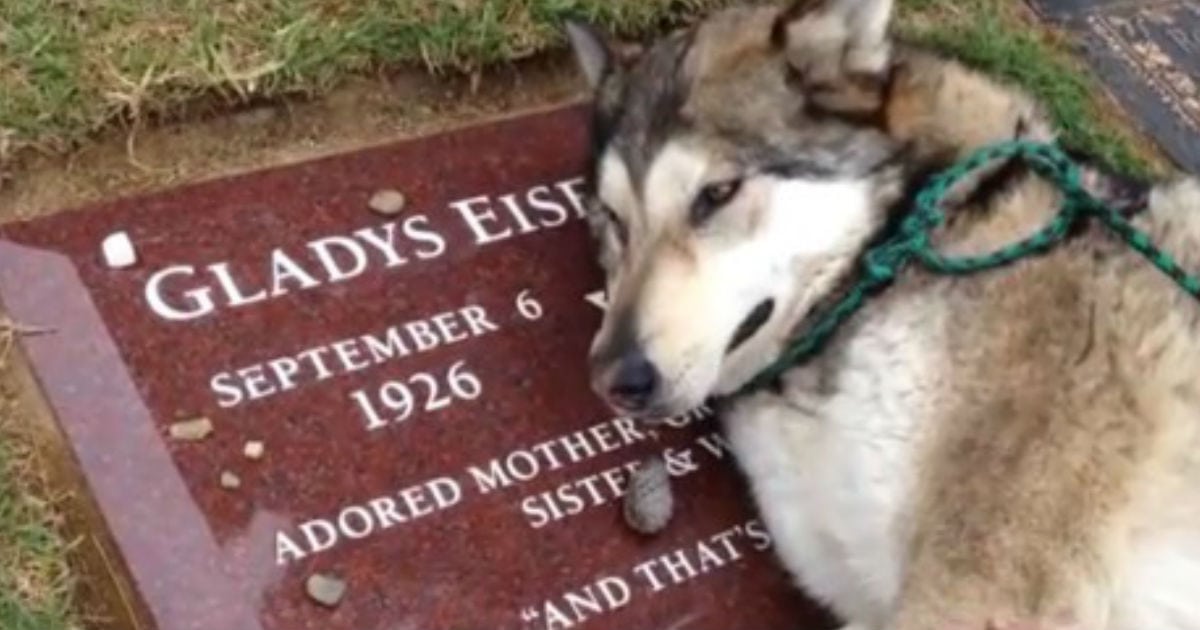Do pooches lament for their friends and family? A great many people concur that they do. Mutts are extremely steadfast and adoring, and they become appended to their human relatives. There are numerous photographs, recordings, and accounts of pooches declining to leave their wiped out proprietor’s side while they are in the healing center or leave their graves when they have passed away.

In a few cases, demise can be similarly as mistaking and troublesome for puppies as it is for people to process. They don’t recognize what to do when their proprietor is no more. They simply stick around, trusting they will return to them. One video posted by Sarah and the Wolves on YouTube demonstrates a wolfdog lying over a grave. It is the grave of his proprietor’s grandma.
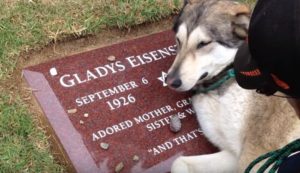
The dog was close to her and clearly misses her now that she has passed away. The owner explains in the video that the dog is named Wiley and that he serves as a therapy animal for war veterans. He is very sympathetic toward humans, which may explain why he is taking this woman’s death so hard. A lot of people viewed and commented on the video, and many of them believe that the dog is indeed grieving.
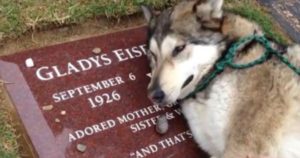
One viewer said: “I believe your wolf is grieving. Once science advances enough for humans to understand wolves and dogs better, I believe that it will prove dogs and wolves have the same complex emotions and bonds that humans have.”
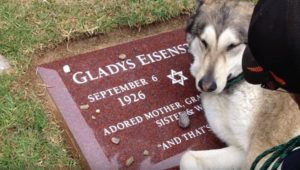
After getting some negative feedback from some viewers, Sarah updated the video description to say: “I may be anthropomorphizing his actions, but it’s how I’m choosing to deal with loss, so deal with it.” According to Daily Puppy, it is not uncommon for dogs to grieve the death of a loved one. The site offered some information about the signs of a mourning in a dog.

“The signs of a mourning dog can range from subtle differences in mood to outright depression. After losing a guardian, dogs may eat less, drink less and even voice their sadness with howls and whining cries. Some dogs will stop their typical playful behavior and display indications of fatigue and sleep more than usual.
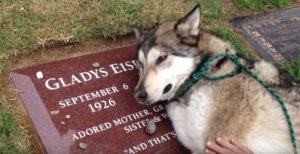
Negative body language will also betray the animal’s feelings as he moves more slowly and deliberately and shows less enthusiasm than before. Some dogs may even begin to look or camp out in places where their guardian spent a lot of time when living.”
